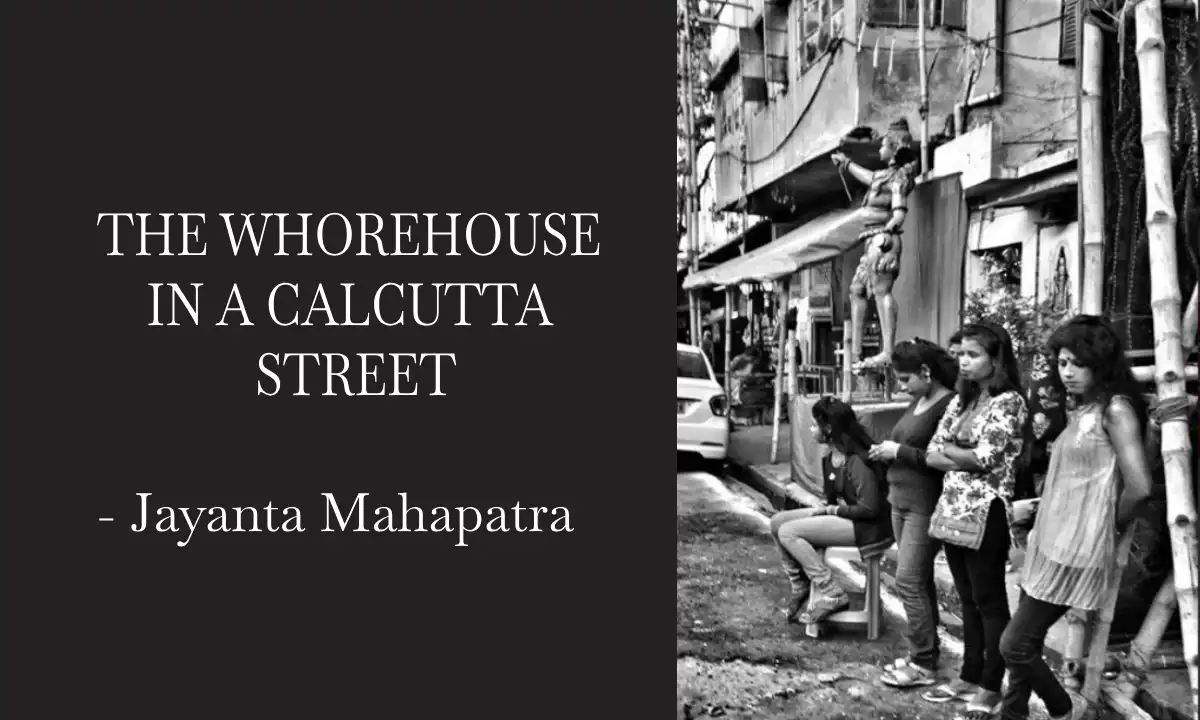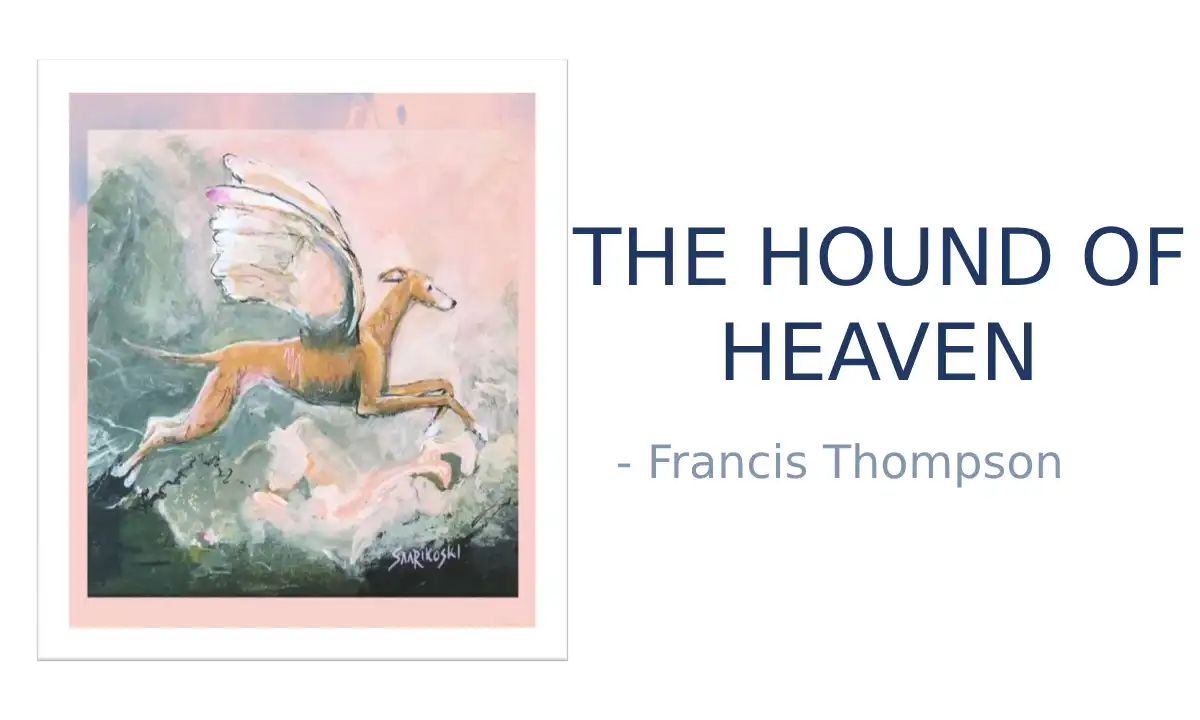Hunger and the Whorehouse
- ‘The Whorehouse in a Calcutta Street’ can be considered as a sequel to the poem ‘Hunger’.
- Both poems have sexuality as their theme.
- In his poems ‘Hunger’ and ‘Whorehouse in Calcutta Street’, Mahapatra describes the life and manner of a prostitute.

- The hunger due to poverty and hunger for sexual gratification is described in such a way that it catches the heart of the readers.
- The whore house in Calcutta Street portrays the condition of an alienated individual in the modern world.
Setting
The poem is set in Calcutta. Calcutta is one of the notorious Indian cities so far as prostitution is concerned, and that is why Mahapatra speaks about “The Whorehouse in a Calcutta Street”.
- It is a peculiar poem which tells about poverty, hunger and scarcity on the one hand while on the other moral depravity, sexuality and lust.
- This poem does not deal so much with the sexual encounter between a customer and a whore. Thus the poem has more of a psychological interest than anything else. Therefore the poem is not a pornographic picture.
- The poet describes each and everything in reality. Mahapatra is a realist who presents everything in a heart-touching way.
- A poem of man-woman relationship, flesh and blood contact, give and take and attraction and repulsion, it is all about sensual pleasure.
Walk right in It is yours.
Where the house smiles wryly into the lighted street.
Think of the women.
You wished to know and haven’t.
The faces in the posters, … and where they part
- A whore house belongs to any visitor who may come to it deliberately and intestinally in quest of sexual gratification.
- The whore house is “smiling into the lighted street” as if it were feeling amused by the arrival of yet another customer.
- Sexuality is one of the most dominant instincts in all human beings and there are numerous stimulants in this world to keep this interest alive most of the time.
- The pictures of women, appearing in newspapers, magazines, periodicals, posters pasted on the walls, and the pictures painted on hoardings are all stimuli which awaken the dormant sexual desire in a man and which intensify that desire if it has already arisen in his heart.
The sacred hollow courtyard
That harbours the promise of a great conspiracy.
Yet nothing you do …
the shooting stars in the eager darkness of return.
Dream children, dark, superfluous; …
at the far edge of the rainbow.
- The whore house looks like a sacred house. Here conspiracies are hatched. Then, any customer going into a whorehouse would experience a sense of guilt. Visiting a prostitute is contrary to the moral code which has always prevailed in society.
- The sense of guilt of a customer deepens when he thinks of the woman whom he has left behind in order to go to a whorehouse and have a new experience of sex.
- There are the “dream children” that the customer is asked to think of. Dream children are left in dark spaces. They have their family, children and people which they need to attend to rather than a temporary sexual relationship with the visitor.
You fall back against her in the dumb light, trying to learn
something more about women
while she does that she thinks proper to please you, …
like a girl holding on to your wide wilderness,…
- The women you fall against in the dumb light have a life of their own which one may not know it.
- The customer would learn something more about women by having come into the whorehouse and by meeting a whore with whom he can have some kind of intimate talk.
- She does what she thinks is proper to please the customer. She does the sweet, little things; she does what the customer might have imagined she would do.
- Every human being has an inner life in which he is, most of the time, unconscious. In fact, a man’s inner personality may remain hidden from him till something happens to draw it out and make him aware of it.
- The statue of the man within comes back to him like a disobeying toy.
- Most of the fancies and much of the make-believe, which a man has been treating as something real, are actually non-existent or exist only in the imagination.
as though it was real, as though the renewing voice
tore the membrane of your half-woman mind
when, like a door, her words close behind:
Hurry, will you? Let me go,
and her lonely breath thrashed against your kind.
- In the course of the sexual act, she urges the customer to hurry up and let her go.
- Every prostitute wants to get rid of a customer as soon as she can because she is hoping that some other customer would quickly come.
- She is concerned only with the commercial aspect of the whole transaction.
- The customer is a fool if he becomes sentimental with her even to the smallest degree.
Mahapatra tried to focus on the female sex in the poems from an alternative angle. He dealt with the agonies and pains that the prostitutes suffer. They are also a part of the so-called “cultural society”.
According to A.K Paniker, ’The Whore House in Calcutta Street’ shows both the strength and the weaknesses of Mahapatra as a poet.


